| All Artists: Franz [Vienna] Schubert, Jenö Jandó Title: Schubert: Piano Sonatas D. 784 & D. 894 Members Wishing: 0 Total Copies: 0 Label: Naxos Original Release Date: 1/1/1993 Re-Release Date: 2/15/1994 Genre: Classical Styles: Forms & Genres, Sonatas, Historical Periods, Romantic (c.1820-1910) Number of Discs: 1 SwapaCD Credits: 1 UPC: 730099573023 |
Search - Franz [Vienna] Schubert, Jenö Jandó :: Schubert: Piano Sonatas D. 784 & D. 894
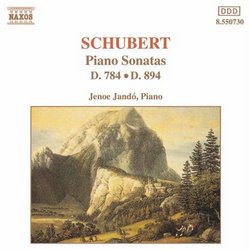 | Franz [Vienna] Schubert, Jenö Jandó Schubert: Piano Sonatas D. 784 & D. 894 Genre: Classical
|
Larger Image |
CD DetailsSimilar CDs
Similarly Requested CDs
|
CD ReviewsElectrifying performances of these two great sonatas Hexameron | 02/21/2007 (5 out of 5 stars) "Can Jeno Jando ever play Schubert badly? After traversing three of his Schubert recordings so far on Naxos, I'm convinced he's in the same league as Brendel and Kempff as an insurmountable Schubertian. Not only does Jando play these works with meticulous nuance but he also plays with a refreshing virility that some pianists shy away from. Brendel, for instance, approaches some of these works as if they were delicate Mendelssohn pieces. Jando is not afraid to passionately unfurl himself, and he does so for the sake of the music, not for virtuosity. Written in 1823, the Sonata D. 784 (No. 14) is the antithesis of some of his lighter and frivolous sonatas. Schubert's mind was much engaged on the idea of death at the time of writing it, and indeed this music reflects ample darkness and turbulence. Jando exhumes the gutwrenching emotion of the first funereal movement with such power. He pours his emotions into the ominous main funeral march-like theme; but right into the development, (7:01) Jando lets fly on Schubert's magisterial and violent outburst with superb feeling. This particular moment of music is one of those all-too-brief moments that any listener will want more of. In the Andante Jando provides an outstanding interpretation of this mellow movement. From the introspective opening to the exalted declaration of chords a minute later, Jando is at his peak of musicality. Quite amazingly, the last movement of this sonata is a virtuosic whirlwind of breadth and drama, such as I've never heard from any Classical composer before. The heavily arpeggiated harmonies of the extreme upper and lower registers that come crashing simultaneously like Lisztian lightning, are actually more in the style of Charles Alkan (1813-88). Compare Schubert's booming and shrieking clashes with some of the sonorous climaxes in Alkan's Comme Le Vent Op. 39; it's startlingly similar. Schubert is indeed a harbinger of Romantic pianism with such daring explorations of the piano's timbres, something that wouldn't become popular until Liszt's heyday. Jando displays a clean and affluently lyrical execution of the D. 894 Sonata (No. 18). Of epic length (15 minutes), the first movement contains music of extreme vocal beauty and impetuous passion. Jando, of course, phrases the beautiful lines with songlike effect. The chordal texture of this movement is also articulated well and the vehemently passionate sections always played with feeling. Schubert's silvery melodies are unleashed in the Andante, with a few dramatic sections of gorgeous harmonies. In the Menuetto, Schubert entices us with an exciting almost Hungarian-flavored dance and a lilting trio section that sounds reminiscent of the tune "For he's a jolly good fellow." It's apparent that Jando's pensive and fiery playing in the first sonata is totally subsided once we get to the ebullient last movement, a delightful Rondo-form Allegretto. Jando summons occasional brio in this unique and sprightly piece, but mostly aims for crystalline melodiousness. Bottom line: Jando is a pure Schubertian. He has recorded these two sonatas with tremendous flare and feeling. In the first sonata, I don't believe I've heard another pianist come close to matching the stormy darkness that Jando engulfs us with. A minor warning: if you turn the volume up quite loudly you may hear Jando hum a bit, but it's not nearly as bad as some of the other famous "hummers" like Gould. Since this recording features such quality interpretations, I don't think the low humming detracts from the value of this disc anyway." Sublime Piano Music Robin Friedman | Washington, D.C. United States | 05/09/2007 (5 out of 5 stars) "For many years, Schubert's piano sonatas were little played, but they have become recognized as rare treasures. In his late works, Schubert put his own voice into sonata form to take music in a different direction from that of Beethoven. Schubert's work lacks organizational rigor; the appeal of the music lies in its spontaniety, introspection, emotional intensity and lyricism.
The Hungarian pianist Jeno Jando has recorded Schubert's sonatas in their entirety for the budget-priced Naxos label, and this CD features the late G major sonata and a slightly earlier work, the Sonata in A minor, D. 784. Even today, these sonatas are less known than, for example, Schubert's A major sonata opus 120 or the final three posthumous sonatas. But they are sublime music indeed. I was moved to revisit this CD by reading my Amazon friend Hexameron's thorough and perceptive review below. The G major sonata dates from 1826, about a year before Schubert's death. It is lengthy, meditative and highly introspective music, the work of a young man who understood being alone. The opening movement "molto moderato e cantabile" is generally played very slowly. It is dominated by a long, rocking chordal theme in 12/8 time. The music remains pensive and subdued throughout while reaching moments of great intensity. The second movement of this work is also in a slow tempo, consisting of a serene melody punctuated with angry and frequent chordal outbursts. As is frequently the case in the Schubert sonatas, the final two movements are more relaxed, as the work concludes with a hearty minuet with accented passages of repeated notes and a lightly-moving laughing through tears finale. The G major is among the greatest of Schubert's sonatas. The three-movement A minor sonata, D. 784 is also an indiosyncratic, highly intimate work composed in 1823. A striking feature of this sonata is the emphasis Schubert gives to the secondary themes in both the first and the third movements. These two movements, and the work as a whole, make great use of the contrast between harsh, angry compositional openings, and a soft, reflective and lyrical answer. Thus the work opens with a heavy, dark minor-key outburst which is unusual in Schubert. It is followed by a short lyrical and soothing theme which, after a lengthy and stormy development section, ultimately has the last word in establishing the tone of the piece. The short slow movement carries forth this theme in a theme of song and tenderness. The whirlwind finale returns to the minor key in an extended passage consisting of angry running triplets and large chords. Again, lyricism and song carry the day as Schubert introduces an irresistable melody which captures the movement until the furiously difficult close. There is formidable competition among available recordings of Schubert sonatas, but Jando plays them well. Because of the length, depth, and subdued character of these works, they will appeal most to listeners with a good grounding in more accessible repertoire for the piano. This recording is an excellent way to get to know two sublime masterpieces for the piano. Robin Friedman" |

 Track Listings (7) - Disc #1
Track Listings (7) - Disc #1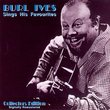
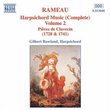

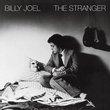
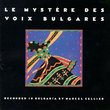


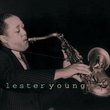


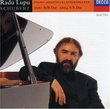
![Brahms: Ein deutsches Requiem [A German Requiem]](https://nationalbookswap.com/cd//m/23/8723/6058723.jpg)
